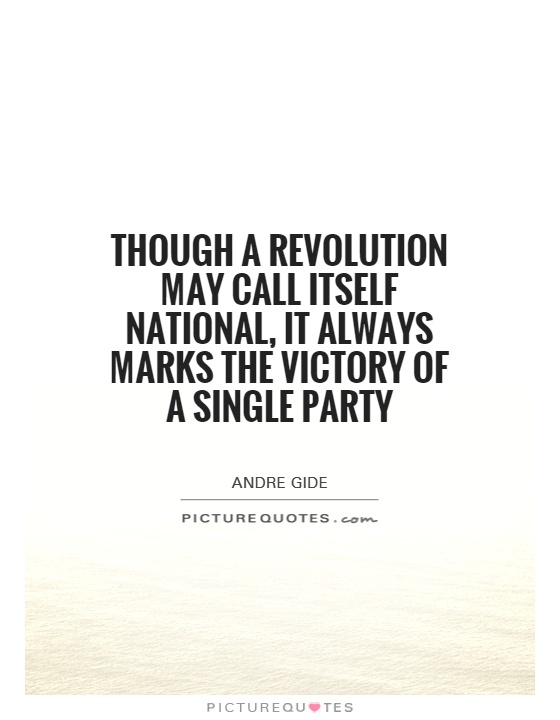Though a revolution may call itself national, it always marks the victory of a single party

Though a revolution may call itself national, it always marks the victory of a single party
André Gide, a French author and Nobel Prize winner, was known for his critical views on politics and society. In his works, he often explored the complexities of power dynamics and the dangers of totalitarianism. The quote “Though a revolution may call itself national, it always marks the victory of a single party” reflects Gide’s skepticism towards revolutionary movements that claim to represent the interests of the entire nation.Gide’s observation highlights the tendency of revolutions to be co-opted by a single party or group that seeks to consolidate power and control. While revolutions are often framed as movements for national liberation or social justice, they can easily devolve into authoritarian regimes that suppress dissent and impose their own agenda on the population. This is evident in many historical examples, such as the Russian Revolution of 1917, where the Bolshevik Party under Vladimir Lenin seized power and established a one-party state that repressed political opposition.
Gide’s warning about the dangers of single-party rule is particularly relevant in today’s world, where populist leaders and authoritarian regimes are on the rise. These leaders often exploit nationalist sentiments to justify their actions and suppress dissenting voices. By claiming to represent the will of the people, they seek to legitimize their grip on power and silence any opposition.
Gide’s critique of revolutions also raises important questions about the nature of democracy and the role of political parties in shaping the course of history. In a true democracy, power is supposed to be distributed among multiple parties and institutions, ensuring that no single group can monopolize control. However, the reality is often far from this ideal, with political parties vying for power and influence at the expense of the common good.












 Friendship Quotes
Friendship Quotes Love Quotes
Love Quotes Life Quotes
Life Quotes Funny Quotes
Funny Quotes Motivational Quotes
Motivational Quotes Inspirational Quotes
Inspirational Quotes